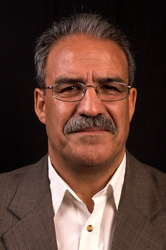The Upper Hand for United States

Should we anticipate any convergence between Russia and the United States on Iran’s nuclear program after Obama’s visit to Moscow?
It is too early to predict. United States is using the missile defense shield as a card to force Russia halt its missile cooperation with Iran. It is clear that Russia can only have one choice: to side with the United States or to continue its cooperation with Iran.
Iran should not really count on Russians as reliable partners. They have failed in running the Bushehr nuclear power plan which was built only for peaceful purposes. It should consider its interests and rely on national forces rather than the Russians.
Can strategic nuclear weapons reduction treaty have an impact on Iran-Russia cooperation on missile and nuclear programs, including the activation of Bushehr power plant?
There are two points here. First, United States, Germany and other Five Plus One members admit that Iran has the right to use peaceful nuclear energy. That’s why Bushehr power plant does not raise their concerns. On the other hand we have Russia which is not willing to see a nuclear power in its southern borders. Moscow’s foreign policy strategy frowns upon another state joining the nuclear club.
But the treaty on strategic nuclear weapons reduction will not have any considerable impact on Tehran-Moscow cooperation for construction of Bushehr nuclear power plant and has nothing to do with it. United States and Russia are negotiating over the renewal of this treaty since they have realized that nuclear stockpiles are costly but ineffective. Even a major face-off such as Bay of Pigs did not drive them to use their weapons.
Plus, both countries have become aware of the risks of holding nuclear arsenal. It is difficult to manage, and meanwhile intrigues the other countries to build their own unconventional weapons. North Korea, Pakistan and India are obvious examples. So in the 21st century, Russia and the United States have achieved the rationality to reduce the number of their strategic nuclear weapons. America took the first step, when in Prague Obama spoke of United States’ commitment to a world without nuclear weapons. Meanwhile, the agreement gives leverage to Russia and United States to stop Iran and other countries from going nuclear. Obama insisted on this in his visit to Moscow.
Is Russia double-crossing Iran and the United States using its cards on missile defense shield and Bushehr power plant?
The missile defense shield is conventional, not nuclear. The US-Russia treaty concerns unconventional nuclear weapons. So these two issues are not connected. But there is a struggle going on between Washington and Moscow. America has the upper hand however. It is the superior economic power of the world and has powerful allies in the international scene.

